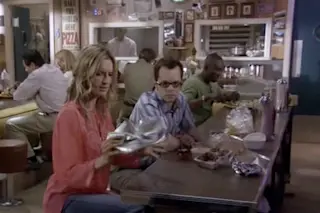Last night on Eureka, Sherriff Carter was faced with a bumbling superhero who had constructed his gear from discarded pieces of technology thrown out by the town's scientists. In this, our wannabe superhero was participating in the ultimate expression of the fine old art of dumpster diving. While rooting through someone else's trash for food or other essentials is often done out of necessity by unfortunates, dumpster diving here means the specific act of searching through commercial waste for technological cast offs, such as computers or computer peripherals. Often times the only thing wrong with this equipment is that it is simply not the latest model, and so has been replaced. Other times there is cosmetic damage only, or even when something is genuinely broken or worn out, it can be cannibalized for parts, such as disk drives. Dumpster diving is one way recycled hard disks can end up being ...
Eureka: The Fine Art of Dumpster Diving
Explore dumpster diving for technology and how it can lead to recycling hard disks, but beware of confidential information left behind.
More on Discover
Stay Curious
SubscribeTo The Magazine
Save up to 40% off the cover price when you subscribe to Discover magazine.
Subscribe

